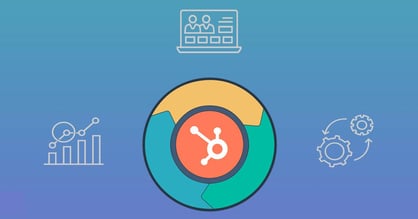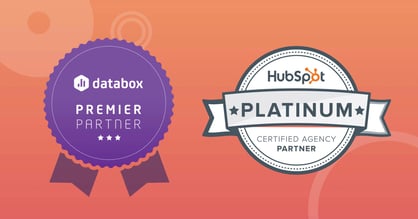In complex B2B sales environments, understanding your customers can make the difference between hitting your targets and falling short. Voice of Customer (VoC) programs will help you unlock powerful knowledge, and one of the best VoC initiatives for achieving that is Client Quality Assessments (CQAs). CQAs are in-depth interviews with existing, former, and even prospective clients. They reveal what clients really value, so you can fine-tune your offering, strengthen relationships, and seize new opportunities. CQAs give you a strategic edge. By systematically gathering candid feedback, you gain the insights needed to drive customer satisfaction, retention, and more intelligent decision-making.
Imagine hearing exactly what your customers love, and what keeps them up at night. CQAs do that. They let stakeholders speak freely about their experiences, so you can challenge assumptions and pivot where needed. As one global risk-analysis and cybersecurity client discovered, quarterly CQAs helped them “address evolving needs… saving time, effort, and money by adjusting plans based on feedback.” CQAs turn hidden unknowns into actionable intelligence. They help you understand market demands and customer satisfaction at a depth that generic surveys or sales anecdotes simply can’t match. With that knowledge, your sales and product teams can craft more effective strategies, from messaging to product roadmaps, that resonate with the people who matter most: your customers.
Related Content: Drive Relationship Selling Through Client Quality Assessments
Your existing customers are a powerful source of market insight. CQAs collect rich, qualitative intelligence on how clients perceive your company, teams, and solutions. Client feedback reveals what matters most, where to improve, and how you rank, which in turn can fuel new revenue, market insight, and team performance to drive retention and growth.
CQAs also align with global quality standards. ISO 9001:2015 “… helps organizations of all sizes and sectors to improve their performance, meet customer expectations, and demonstrate their commitment to quality. Its requirements define how to establish, implement, maintain, and continually improve.” By complying with this ISO standard, you show that you are committed to delivering flawless products or services. CQAs can help you achieve compliance.
Related Video: Why Should You Conduct Client Quality Assessments?
Not all feedback programs are created equal. The most effective CQAs stand out because they include human-led interviews, not impersonal online surveys.
When an experienced interviewer engages clients in conversation (ideally by phone or video), they uncover specific, candid feedback. Customers offer context, share stories, and clarify concerns. Unlike checkbox surveys, these conversations are dynamic and meaningful.
MarketLauncher has over 24 years of experience conducting these interviews. We've completed thousands for B2B clients across North America and beyond. And we practice what we preach by regularly assessing our clients at multiple stages of their engagement with us. The difference is clear: human-led interviews typically yield a 40–60% completion rate, compared to just 10–20% for electronic surveys.
Done correctly, interviews generate more than just data; they provide insight. Responses are nuanced and context-rich. You'll capture insights that offer actionable feedback, the kind that shapes high-impact business decisions.

CQAs are only valuable if you act on them. The insights should inform your strategy across teams.
For example, if your customers consistently praise your response time, that’s marketing gold. Turn those quotes into testimonials. If multiple clients mention a missing feature, elevate it on your product roadmap.
And don’t forget to close the loop. Let your customers know how their feedback led to change. It builds trust and loyalty.
AI can supercharge your CQA efforts. ML uses Custom AI models trained on CQA transcripts. These AI assistants can instantly answer complex queries, like:
Unlike static reports, this AI layer provides live analytics. As interviews roll in, the model updates. If a concern emerges, it is flagged. If clients mention a competitor more frequently, it notes the trend. This makes the feedback loop faster and more responsive.
ML’s Custom AI model even helps with ISO audits by generating summaries that show how client feedback drives improvements. And for marketing, it surfaces standout quotes or testimonials instantly.
This blend of human insight and AI speed means better decisions, made faster.

CQAs and win/loss interviews are both powerful, but serve different goals:
Both have value. CQAs support customer experience and retention. Win/Loss programs fuel sales optimization. Ideally, your B2B organization should do both for a complete VoC strategy.
Related Content: 10 Reasons Why (and 4 Steps How) To Conduct a Win/Loss Analysis
At their best, CQAs combine human empathy with AI-driven efficiency. Trained interviewers elicit detailed feedback. AI organizes, analyzes, and surfaces trends instantly. Together, they accelerate understanding and improve outcomes.
ML has been perfecting this model for over two decades. We’ve learned that when you listen to your clients and act on what they say, your business grows stronger.
If your B2B company isn’t doing CQAs yet, now’s the time. In today’s competitive landscape, you need every advantage. If ISO compliance is a priority, a CQA program will keep you on track. But whether or not compliance is your goal, CQAs will sharpen your strategy, strengthen your relationships, and set you apart in the market.
Related Playbook: Voice of Customer Programs: CQAs, Win/Loss Analysis, and Market Research





Privacy Policy | MarketLauncher All Rights Reserved 2023